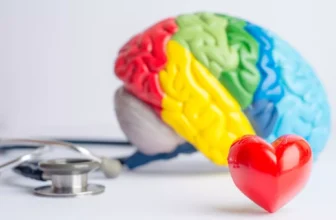
When aiming for weight loss, the choices you make in your diet play a crucial role. Incorporating foods rich in lean proteins, fiber, healthy fats, and low-calorie vegetables can provide a solid foundation for your weight loss journey. These foods not only support your goals but also offer essential nutrients to keep you feeling satisfied and energized. But, what makes these foods so effective in aiding weight loss? Let's explore the science behind their impact on your body and how they can help you achieve your desired results.
Lean Proteins
When aiming to shed pounds effectively, incorporating lean proteins into your diet is crucial. Lean proteins, such as skinless poultry, fish, tofu, legumes, and low-fat dairy products, are essential for weight loss. Not only do they help you feel full and satisfied, but they also support muscle growth and repair, which can boost your metabolism.
Including lean proteins in your meals can help regulate your appetite and prevent overeating. They require more energy to digest compared to fats or carbohydrates, making them a great choice for weight management. When planning your meals, aim to have a palm-sized portion of lean protein with each meal. This will help you maintain muscle mass while losing fat.
Additionally, lean proteins can help stabilize your blood sugar levels, reducing cravings and keeping you energized throughout the day. Swap out processed meats for leaner options like grilled chicken or fish, and notice the positive impact it has on your weight loss journey. Remember, balance is key, so make sure to pair your lean proteins with plenty of vegetables and whole grains for a well-rounded diet.
Fiber-Rich Foods
Incorporate fiber-rich foods into your diet to support weight loss and overall health. Fiber is essential for weight management as it helps you feel full for longer periods, reducing the chances of overeating. Foods high in fiber, such as fruits, vegetables, whole grains, legumes, and nuts, can aid in digestion and promote a healthy gut. Aim to include a variety of these foods in your meals to increase your daily fiber intake.
When selecting fruits, opt for options like berries, apples, and pears, which aren't only rich in fiber but also provide essential vitamins and antioxidants. Vegetables such as broccoli, Brussels sprouts, and carrots are excellent choices for fiber content. Whole grains like oats, quinoa, and brown rice are great sources of fiber and can be included in your diet in place of refined grains.
Healthy Fats
To further enhance your weight loss journey, consider incorporating healthy fats into your diet. While fats have been demonized in the past, it's essential to understand that not all fats are created equal. Healthy fats, such as those found in avocados, nuts, seeds, and olive oil, can actually support your weight loss goals.
Including healthy fats in your diet can help you feel full and satisfied, reducing the likelihood of overeating. They also play a crucial role in supporting your body's overall health, including brain function, hormone production, and nutrient absorption.
When incorporating healthy fats into your meals, be mindful of portion sizes. While these fats are beneficial, they're also calorie-dense, so moderation is key. Try adding a handful of nuts to your morning yogurt or salad, drizzling olive oil over roasted vegetables, or incorporating avocado into your smoothies for a delicious and nutritious boost. By including these healthy fats in your diet, you can support your weight loss journey while enjoying flavorful and satisfying meals.
Low-Calorie Vegetables
Consider adding low-calorie vegetables to your meals to boost your weight loss efforts and increase your nutrient intake. Vegetables such as spinach, kale, broccoli, cauliflower, bell peppers, and zucchini are excellent choices. These vegetables are low in calories but high in essential nutrients like vitamins, minerals, and fiber. By incorporating more of these vegetables into your meals, you can create filling and nutritious dishes that support your weight loss goals.
Low-calorie vegetables aren't only beneficial for weight loss but also for overall health. They can help you feel full without consuming excess calories, making it easier to maintain a calorie deficit for weight loss. Additionally, the high fiber content in these vegetables aids digestion and promotes gut health. Including a variety of low-calorie vegetables in your diet can also enhance the flavor and texture of your meals, making healthy eating more enjoyable.
Incorporating low-calorie vegetables into your meals is a simple yet effective way to support your weight loss journey while nourishing your body with essential nutrients.




